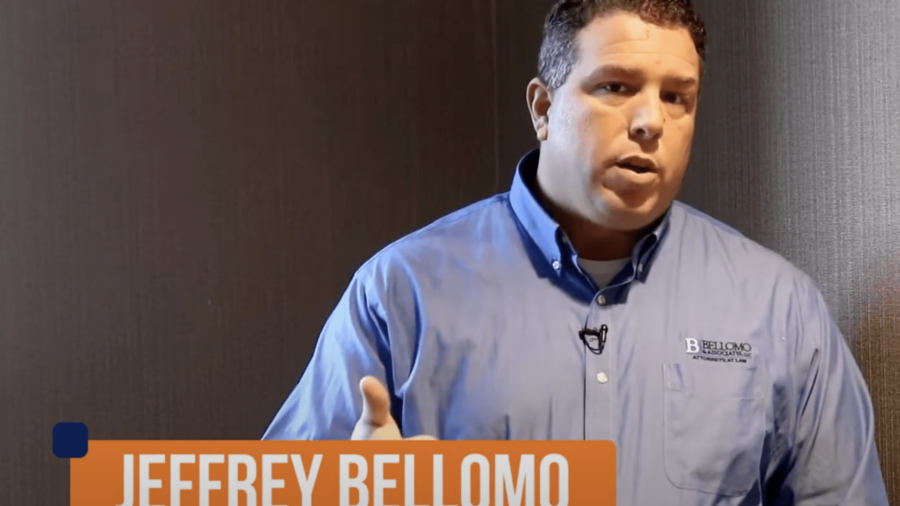Medicaid and asset protection planning requires precision and expertise. Attorneys must abide by the federal and state rules and create tailored strategies for each client. Strategic Trust and Estate Planning Software (STEPS™) by Lawyers With Purpose® offers a specialized solution to simplify these challenging tasks, providing attorneys with the tools needed to deliver accurate and reliable advice. And with the added advantage of the iPug® Asset Protection Trust, estate planning has never been in a better position to serve their clients with their best interests at the forefront of their practices.
The Challenges of Medicaid Planning
Medicaid eligibility isn’t as straightforward as we’d like it to be, governed by guidelines and strict income and asset limits. Attorneys often relying on manual processes often find themselves caught in a maze of paperwork, calculations, and endless rule updates. Inaccurate calculations or missing documents can easily derail a client’s application.
STEPS™ addresses these challenges head-on by automating the most tedious and error-prone parts of Medicaid planning. From calculating eligibility to generating clear documentation, it provides attorneys with a robust, efficient solution for managing Medicaid cases.
How STEPS™ Supports Medicaid Planning
Eligibility Calculations
STEPS™ automatically calculates eligibility based on the latest rules, saving attorneys countless hours of research and manual work. The software stays up-to-date with rule changes, so attorneys can always rely on the most current information.
Scenario Modeling
With the “what-if” scenario modeling tools, attorneys can create multiple options for clients, helping them understand the financial impact of different planning decisions. This feature is invaluable when navigating the complex rules of Medicaid eligibility.
Clear Documentation
STEPS™ generates Medicaid-compliant documents that meet legal requirements. With pre-built templates and step-by-step interviews, attorneys can generate the necessary paperwork quickly and accurately, reducing the risk of errors.
Simplifying Asset Protection with STEPS™
Customizable Trust Documents
Attorneys can use pre-designed templates to draft asset protection trusts tailored to each client’s needs. These trusts comply with all legal standards and offer flexibility, ensuring that they meet the specific needs of clients while staying within regulatory frameworks.
iPug® Asset Protection Trust
The iPug® Asset Protection Trust, designed for clients seeking to protect their assets while still maintaining control over them, offers unparalleled flexibility. It allows for customization based on specific client needs, creating a protective layer around assets without the rigidity of traditional irrevocable trusts.
The iPug® trust is a key component of comprehensive asset protection, allowing attorneys to map out planning strategies without sacrificing clarity or control. As part of the STEPS™ system, it ensures that clients’ assets are safeguarded in the most effective way possible.
Our strategic trust and estate planning software, STEPS™, includes customizable trusts designed with flexibility in mind. Some traditional irrevocable trusts can’t be altered. However, certain types of irrevocable trusts—like the iPug® —allow for specific modifications based on the type of trust chosen.
Dave Zumpano, Esq., Founder of Lawyers With Purpose said: “Why consider an irrevocable trust? Primarily, for asset protection and tax planning. For instance, if your estate exceeds certain thresholds, the government will tax amounts over that exemption. Currently, this threshold in the U.S. is about $13 million, with a 40% federal tax on anything above that. However, in January 2026, this exemption is set to decrease, possibly to around $7 million, which could increase tax exposure.
Additionally, some states, like New York, impose their own estate taxes, which can add up to 15% on top of federal estate tax. Combined with taxes on retirement accounts, this could mean as much as 74% of some assets are lost to taxes.
So, trusts—particularly customized ones like ours—allow for better control over these outcomes, helping to reduce the financial impact on your heirs.”
The iPug® trust is distinct because it empowers clients with control over their assets while ensuring robust protection from creditors and long-term care costs. Traditional irrevocable trusts are restrictive, often requiring the client to relinquish control, access, and flexibility for tax benefits. But iPug® changes that.
Here’s what sets the iPug® trust apart:
- Client Control: With the iPug®, the Grantor can remain the trustee. Unlike older trust types, you don’t have to appoint your children or anyone else as the trustee, keeping you in full control over investment decisions and distributions.
- Flexibility in Benefits: You decide whether you retain the right to income. This flexibility ensures that you can protect what matters most without exposing all assets to potential liabilities.
- Modification Powers: Even as an irrevocable trust, the iPug® lets you change beneficiaries and other details as your circumstances or relationships change.
How STEPS™ Benefits Your Estate Planning Practice
Efficiency
By automating calculations and document generation, STEPS™ reduces time spent on repetitive tasks. Attorneys can focus more on strategic planning and client interactions, rather than being bogged down by administrative work.
Accuracy
Built-in safeguards minimize errors, ensuring compliance with Medicaid and trust laws. By reducing the risk of mistakes, the software gives attorneys the confidence to offer their clients the highest level of service.
Client Satisfaction
Clients benefit from faster, more accurate results, helping to build their trust in your services. With the clarity and speed provided by STEPS™, you can help clients make informed decisions with confidence, improving overall satisfaction.
Case Study: Streamlining Medicaid Planning
A solo practitioner who had been struggling to keep up with Medicaid planning used STEPS™ to manage their growing workload. With the software’s automated tools, the attorney reduced preparation time for Medicaid plans by 40%, freeing up hours that could be used for client meetings and other important tasks. The result was a more efficient practice and happier clients.
Access iPug® Asset Protection Trust via STEPS™
STEPS™ simplifies the world of Medicaid and asset protection planning. With features designed for these specific needs, it not only saves attorneys time but also improves accuracy and client satisfaction. When paired with the iPug® Asset Protection Trust, the solution becomes even more powerful, allowing attorneys to deliver tailored asset protection strategies with ease.
Want to improve your Medicaid and asset protection services? Book a demo of STEPS™ and discover how our proprietary tools, including the iPug® Asset Protection Trust, can enhance your estate planning practice.











